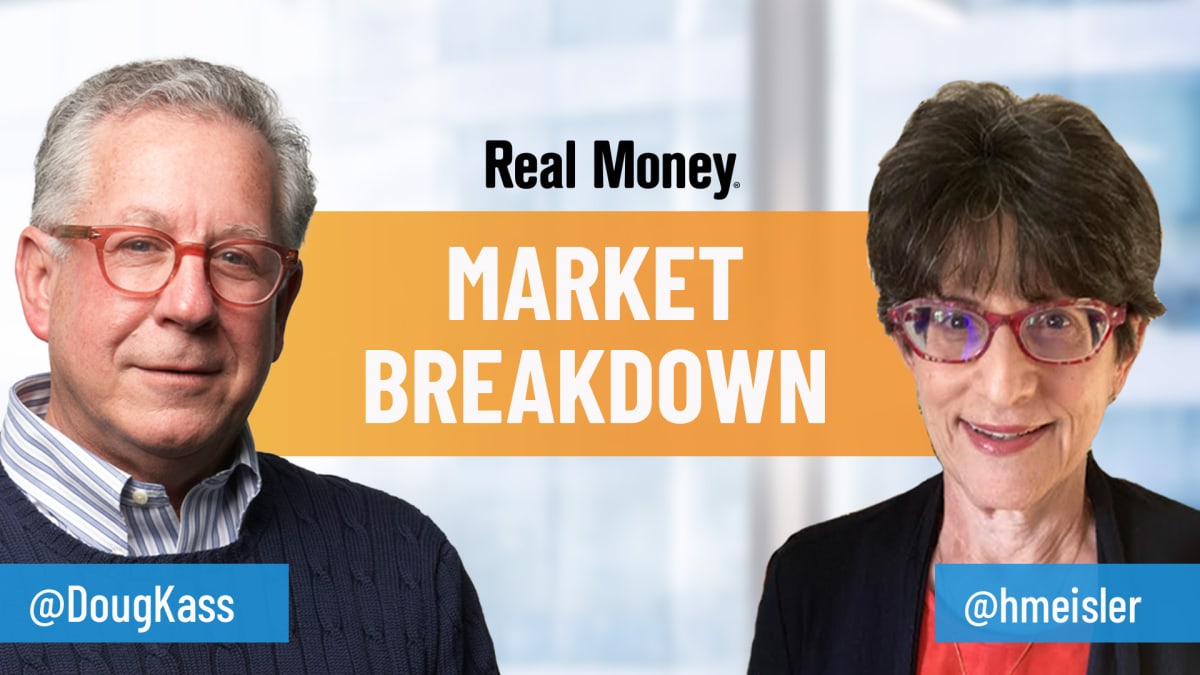
2023 is just around the corner, and while some are ready to bid adieu to the year that was, investors and traders are wondering what’s next.
On Monday, Dec. 14, Real Money contributors Doug Kass and Helene Meisler joined TheStreet’s Twitter Spaces to talk about their 2023 expectations, and discuss sectors they’re watching.
The Spaces lasted over an hour, and was rich with information, and because there were so many topics covered, here are four of the top moments:
Don’t Predict the Market
Both Kass and Meisler agree with this sentiment, but Kass gave the audience some sage advice from his decades of experience on Wall Street.
“So I think predicting the market on a daily or weekly or even a monthly basis has become increasingly difficult in a world that is dominated by machines and algorithms,” he said.
Trend Followers Should Tread Carefully
Meisler, when asked about the greatest challenge technical analysts face today, had a simple, yet poignant response. For her, it’s important to not be a trend follower.
“It's not being able to recognize when the market has changed. And that's probably always been my problem. But I'm a terrible trend follower. I've always said, I am going to retire the day that I learned to be a trend follower. But in general, I think trends since the bear market began, which again, I think is more than a year ago, since the bear market began, I think it's been harder actually to be a trend follower, even if you're bearish,” Meisler explained.
Has TATA Replaced TINA?
Kass is currently working on his 15 surprises of 2023. He believes that the first six months of the year are going to be “problematic” before “we can go up.”
“What happens if that occurs at a time in which the US economy begins to accelerate because of all the pent-up demand and the base effects and the lower energy prices, which have been extremely profound in the past and surprising to some in the last two months. Headline inflation below 3% year over year, let's say, in the second quarter, and that the consumer remains surprisingly strong and the job market remains surprisingly tight, and that wage growth never slows. And meanwhile, China continues to do what they appear to be doing,” Kass continued.
“Reopening in the first half and lower electricity prices create a GDP boom, perhaps even in Europe. That would be a very interesting scenario. And we go up, up and away and no one's really looking at that. And it's not out of the realm of possibility…I just don't see it right here starting in December. I can see it starting in January, just right away. What I see, even we can postulate about where the economy is, et cetera I personally am probably not equipped to do it with much accuracy, but what concerns me even more than the inflation or disinflation arguments is what I call TATA, which replaced TINA–there is no alternative…TATA–treasuries are the alternative. And to me, when you can get equity-like returns risk-free at 5% to 6% for high-grade corporates. That's the most important limiting factor, in my view, to a meaningful advance in the S&P,” he added.
TLDR: Kass is looking at Treasuries Are the Alternative (TATA) over There Is No Alternative (TINA) for a slew of reasons, which includes a strong consumer in the second quarter and a possible GDP boom.
Both Meisler and Kass agreed that the end of 2022 is not going to be enough to get a definitive rally out of the market. At least, not based on their observations so far.
Meisler’s more technical look helped to back up the fundamental viewpoint Kass supplied.
“I see at best we can maybe rally for a little bit here and then I think we would just come right back down. To me, the consensus right now is that we can hold up until year end, but then you're not going to want to own them come January. Quite frankly, my work says that if you can keep them down until maybe the middle of January, maybe you set up a bit of rally then,” she explained.
FAANG Is a Trading Vehicle…For Now
The FAANG names, which were the darlings during Covid, have had a fall from grace so to speak. Well, so long as you exclude Apple (AAPL). But Meta is down 64% in the past year, both Amazon (AMZN) and Netflix (NFLX) are down 46% and Alphabet (GOOGL) is down 34%.
Meisler noted that out of the big tech names, Microsoft (MSFT) “has a different look….I still think if it's going to be OK, there's still a lot of work to be done, but it's got a different look only because at the end of November it managed to, by a smidge, make a higher high.”
But for now, Meisler isn’t sold on the FAANG names.
She explained, “So, you know, that's my problem with, if you will, the FAANG names are that maybe they've seen the lows, I don't know. But right now, at best, they're trading vehicles.”
If you missed the Spaces, and want to catch up in its entirety, you can listen to it. For more from Meisler and Kass, head over to Real Money.







